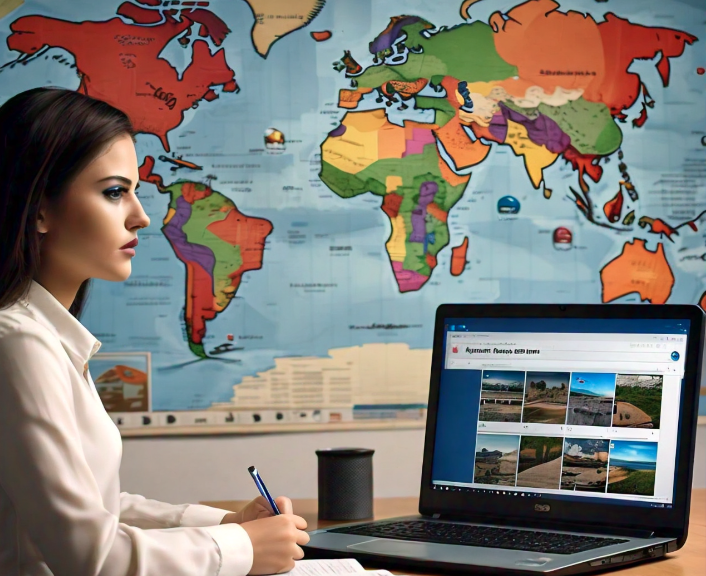Job Search Strategies for International Opportunities
Introduction
Thinking about taking your career to new heights by working abroad? You’re not alone! The trend of searching for international job opportunities is skyrocketing, and it’s not just for the thrill of living in a new country—there are amazing career advancements and experiences to be gained. But before you dive in, it’s crucial to have a solid strategy in place. Let’s break down some effective job search strategies to help you land that dream role overseas.
Understanding the International Job Market
Key Differences Between Domestic and International Job Markets
First things first, understanding the international job market is like learning a new language—it’s essential! The dynamics can be quite different from what you’re used to back home. Factors like local job availability, cultural expectations, and even work visa regulations can play a significant role in your job search.
[ninja_table_builder id=”337″]Popular Industries for International Jobs
Certain sectors are especially booming in international markets. For instance, tech, healthcare, engineering, and education are often in high demand. If your skills align with these industries, you’re already ahead of the game!
Preparing Your International Job Application
Crafting a Global CV
Your CV is your ticket to getting noticed. When crafting it for international opportunities, focus on key elements like:
- Contact Information: Include your LinkedIn profile.
- Professional Summary: Tailor it to highlight your international experience.
- Experience and Skills: Be clear and concise.

Formatting Tips for Different Regions
Different countries have different expectations for CV formats. For example, in the U.S., it’s typical to keep it to one page, while in Europe, a two-page CV is more common. Research the preferred format for the country you’re targeting!
Writing a Compelling Cover Letter
Your cover letter is your chance to shine and explain why you’re the perfect fit for the job. Focus on:
- Why You’re Interested: Mention specific reasons related to the company or country.
- What You Bring to the Table: Highlight skills that would be beneficial in an international setting.
Common Pitfalls to Avoid
Avoid generic statements and clichés. Instead, make it personal and specific to the role you’re applying for.
Leveraging Online Job Portals
In today’s digital age, online job boards are invaluable.
[ninja_table_builder id=”329″]Popular Job Boards for International Opportunities
Websites like LinkedIn, Indeed, and Glassdoor have sections dedicated to international roles. Additionally, niche sites like GoAbroad.com and Expat.com can help you find specialized opportunities.
How to Optimize Your Profiles on These Platforms
Make sure your profiles are complete and engaging. Use keywords related to your desired job, and don’t forget to showcase your skills and experiences relevant to international work.
Networking for Global Opportunities
Building an International Network
Networking is crucial. It’s not just what you know; it’s who you know! Use platforms like LinkedIn to connect with industry professionals and join discussions.
Using Social Media for Networking
Don’t underestimate the power of social media! Follow industry leaders, engage in conversations, and share your insights.

Attending International Job Fairs
Job fairs are a goldmine for networking and finding opportunities.
Benefits of Job Fairs
They allow you to meet potential employers face-to-face, which can set you apart from other candidates.
How to Prepare for Them
Dress professionally, bring copies of your CV, and prepare a brief introduction about yourself. Practice makes perfect!
[ninja_table_builder id=”331″]Utilizing Recruitment Agencies
How Recruitment Agencies Can Help
Recruitment agencies can be a great asset in your job search. They often have access to job listings not available to the public and can provide valuable insights.
Tips for Finding the Right Agency
Look for agencies specializing in your field or the country you want to move to. Check reviews and ask for recommendations!
Preparing for Interviews
Understanding Cultural Differences
Cultural awareness is key when preparing for interviews in different countries. Each culture has its norms and expectations, so do your homework!
Tips for Adapting to Different Interview Styles
For example, in some cultures, a more formal approach is expected, while in others, a casual conversation is preferred. Tailor your style accordingly.
Common Interview Questions for International Jobs
You might encounter unique questions like:
- “How would you adapt to a different work culture?”
- “What challenges do you foresee in relocating?”
How to Prepare Your Responses
Think about your experiences and how they relate to these questions. Practice articulating your answers clearly and confidently.
[ninja_table_builder id=”332″]Following Up After Applications
After applying, don’t just sit back and wait!
The Importance of Follow-Ups
Following up shows your enthusiasm for the position. A simple email can make a significant impact.
How to Effectively Follow Up
Wait about a week or two after submitting your application, then send a polite email reiterating your interest in the role.

Conclusion
Searching for international job opportunities doesn’t have to be daunting. By understanding the market, preparing your application meticulously, and utilizing networking strategies, you can enhance your chances of landing that dream job abroad. Remember, every step you take is a step closer to an exciting new chapter in your career!
[ninja_table_builder id=”336″]FAQs
- What are the best countries for finding international job opportunities?
Some of the best countries include Germany, Canada, Australia, and the UAE, depending on your industry. - How do I tailor my CV for a specific country?
Research the preferred format and focus on relevant experiences that align with local job market expectations. - Is it necessary to speak the local language?
While it can be beneficial, many international companies operate in English. However, knowing the local language can give you an edge. - How can I improve my chances of getting an interview?
Network actively, tailor your applications, and follow up after submitting your CV. - What should I expect during an international job interview?
Expect questions that assess your adaptability and cultural awareness, as well as typical job-related inquiries.
